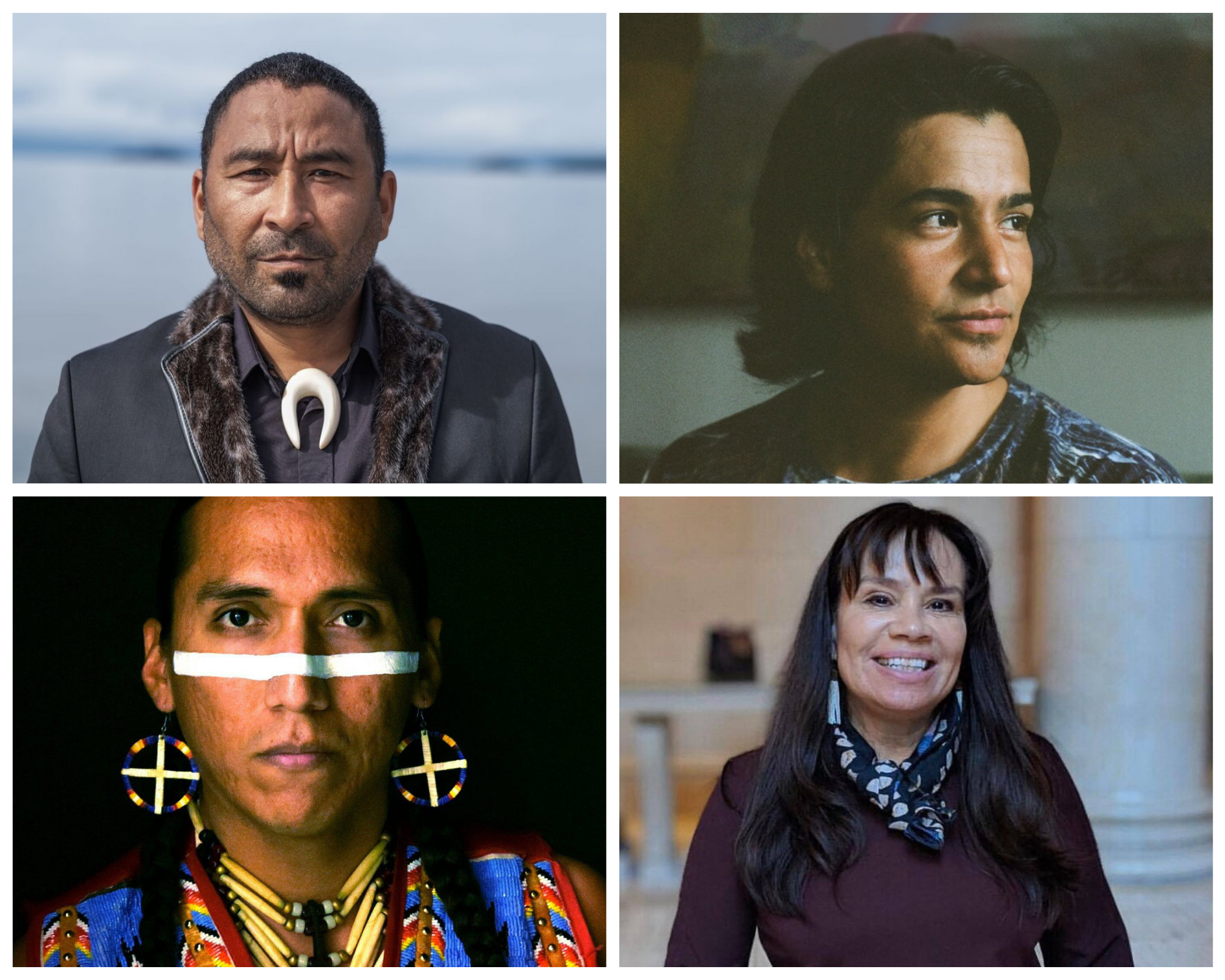
- Details
- By Darren Thompson
As part of the John F. Kennedy Center for the Performing Art’s 50th anniversary, the arts organization has chosen 50 people whose work reflects cultural inclusivity and compassion for its The Kennedy Center Next 50 program. The program includes 50 artists, cultural leaders, arts organizations, and community members from many walks of life including Qacung aka Stephen Blanchett (Yup’ik), Ty Defoe (Ojibwe/Oneida), Tony Duncan (Three Affiliated Tribes/San Carlos Apache), and Lori Pourier (Oglala Lakota).
“It’s an honor to be chosen by such a prestigious arts center as the Kennedy Center,” said Kennedy Center Next 50 artist Tony Duncan to Native News Online. “I’ve always admired the works done and collaborations the Kennedy Center has done to bring the arts and the different stories of some many cultures to the world.”
Duncan was notified of his selection to the prestigious arts organization’s program several months ago. “It was definitely a wonderful surprise to receive the email a few months back,” he said of being notified of his recognition.
Want more Native News? Get the free daily newsletter today.
Duncan is an award-winning San Carlos Apache and Three Affiliated Tribes hoop dancer and Native American flute player. His hoop dancing has earned him 6 world championships at the Heard Museum’s Hoop Dance World Championship in Phoenix, Arizona. His music has earned him several Native American Music Awards including Artist of the Year in 2013.
“I hope I can bring an Indigenous voice and my own authentic story to the Kennedy Center,” he said. “It’s always important and very critical that our stories continue to be told.”
“As we look to the bright future ahead, we recognize that our history lives in the leaders, staff, artists, donors, and audiences that make it a ‘living’ memorial,” says the Kennedy Center’s website. “As the Nation’s Cultural Center, the Kennedy Center's objective is to invite art into the lives of all Americans and ensure it represents the cultural diversity of America.”
Qacung Stephen Blanchett is an award-winning Yup'ik dancer, singer, and culture bearer from Juneau, Alaska. His work has been awarded by the Native Arts & Cultures Foundation, and he has served in leadership roles for the Alaska Native Heritage Center, First Alaskans Institute, and the Central Council of Tlingit and Haida Indian Tribes of Alaska.
Ty Defoe is a Grammy-award-winning composer, playwright, librettist, interdisciplinary artist, actor, choreographer, eagle dancer, and hoop dancer from the Oneida Nation of Wisconsin and the Red Cliff Band of Lake Superior Chippewa (Wisconsin). His work has taken him throughout the globe with appearances on Netflix and on Broadway.
Lori Pourier is Oglala Lakota from the Pine Ridge Indian Reservation and has served as the President of the First Peoples Fund (FPF) since 1999. Pourier is a 2017 Ford Foundation Art of Change Fellow, a recipient of the 2013 Women’s World Summit Foundation Prize for Creativity in Rural Life, a 2013 Louis T. Delgado Distinguished Grantmaker Awardee. She also serves on the Board of Directors of the Jerome Foundation and the Library of Congress American Folklife Center Board of Trustees.
The Kennedy Center Next 50 program includes 50 leaders as well as organizations that are lighting the way forward, according to the Kennedy Center. “These 50 cultural leaders will take part in programs, forums, residencies, and events to create opportunities for discourse with civic leaders to ensure that the voices of artistic and cultural leaders are lifted and heard.”
The Kennedy Center was designated on January 24,1964, by former President Lyndon B. Johnson as a living memorial to President John F. Kennedy, two months after his assassination in 1963. In November 1962, President Kennedy and Mrs. Kennedy had organized a $30 million campaign to raise funds for construction for the National Cultural Center. His dedication to supporting and advancing performing arts was well recognized and still is celebrated throughout the organization’s programs. The Kennedy Center opened to the public in September 1971.
More Stories Like This
Watermark Art Center to Host “Minwaajimowinan — Good Stories” ExhibitionMuseums Alaska Awards More Than $200,000 to 12 Cultural Organizations Statewide
Zuni Youth Enrichment Project Takes Top Emerging Artist Apprentices to Phoenix for Artistic Exploration and Cultural Immersion
From Dishwasher to Award-Winning Chef: Laguna Pueblo's Josh Aragon Serves Up Albuquerque's Best Green Chile Stew
Rob Reiner's Final Work as Producer Appears to Address MMIP Crisis
Help us defend tribal sovereignty.
At Native News Online, our mission is rooted in telling the stories that strengthen sovereignty and uplift Indigenous voices — not just at year’s end, but every single day.
Because of your generosity last year, we were able to keep our reporters on the ground in tribal communities, at national gatherings and in the halls of Congress — covering the issues that matter most to Indian Country: sovereignty, culture, education, health and economic opportunity.
That support sustained us through a tough year in 2025. Now, as we look to the year ahead, we need your help right now to ensure warrior journalism remains strong — reporting that defends tribal sovereignty, amplifies Native truth, and holds power accountable.
 The stakes couldn't be higher. Your support keeps Native voices heard, Native stories told and Native sovereignty defended.
The stakes couldn't be higher. Your support keeps Native voices heard, Native stories told and Native sovereignty defended.
Stand with Warrior Journalism today.
Levi Rickert (Potawatomi), Editor & Publisher
